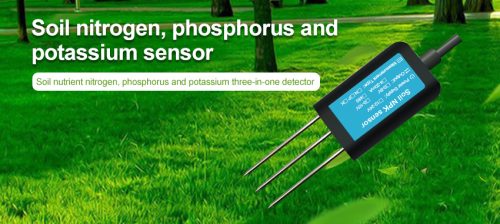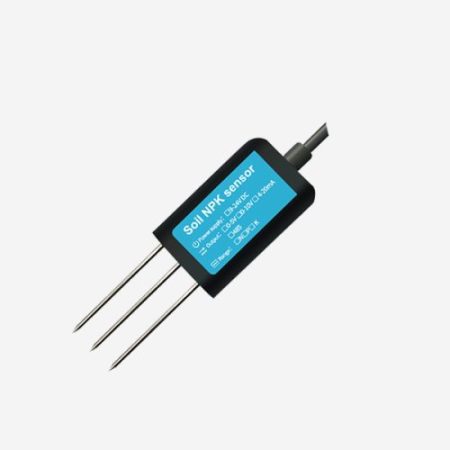The NPK sensor is an innovative device that is revolutionizing modern agriculture by enabling precise nutrient management in crop production. These sensors measure the levels of essential nutrients (nitrogen (N), phosphorus (P) and potassium (K)) in the soil, providing farmers with real-time data to improve crop yields. The purpose of this paper is to explore the significance, working principle and application of NPK sensors and their impact on promoting sustainable and efficient agricultural practices.

Learn about npk sensors
NPK sensor are instrumental in addressing the challenges of nutrient management in agriculture, where the efficient use of fertilizers is essential for maximizing crop productivity while minimizing environmental pollution. These sensors use spectroscopic techniques to measure the concentrations of nitrogen, phosphorus and potassium in soil. By providing precise and real-time data on nutrient levels, NPK sensors enable farmers to make informed decisions regarding fertilizer application, ensuring that crops receive the right amount of nutrients at the right time, thereby optimizing yield and minimizing nutrient losses.working principle of NPK sensors
Working principle of NPK sensors

The working principle of NPK sensors involves the use of cutting-edge technologies to detect and quantify the levels of nitrogen, phosphorus, and potassium in the soil. Spectroscopic sensors, for example, analyze the interaction between light and soil samples to determine nutrient concentrations, while electrochemical sensors utilize the principles of electrochemistry to measure ion concentrations in the soil solution. Ion-selective electrodes, on the other hand, are designed to selectively measure specific ions, such as nitrate, phosphate, and potassium ions, providing accurate and reliable data on nutrient levels. By leveraging these technologies, NPK sensors enable farmers to assess soil fertility, optimize fertilization practices, and maintain nutrient balance for sustainable crop production.
Advantages of NPK sensors

One of the key advantages of NPK sensors is their ability to provide real-time and site-specific data on soil nutrient levels, allowing farmers to implement precision nutrient management strategies. By accurately measuring nitrogen, phosphorus, and potassium levels in the soil, these sensors enable farmers to tailor fertilizer application to the specific needs of each field, thereby reducing fertilizer waste and minimizing the risk of nutrient runoff into water bodies. This precision nutrient management approach not only optimizes crop yields but also contributes to the conservation of natural resources and the protection of the environment.
NPK sensor have diverse applications in modern agriculture, ranging from optimizing fertilizer use in row crops to managing nutrient levels in specialty crops and horticultural production systems. In row crop agriculture, such as corn, soybeans, and wheat, NPK sensors are used to guide variable rate fertilizer application, where the amount of fertilizer applied is adjusted based on the nutrient requirements of different areas within a field. This approach allows farmers to maximize fertilizer use efficiency, reduce input costs, and minimize environmental impact. In specialty crop production, including fruits, vegetables, and ornamental plants, NPK sensors play a crucial role in fine-tuning nutrient management practices to meet the specific needs of different crops and soil types, thereby enhancing crop quality and marketability.
Impact of NPK sensors on agriculture

The impact of soil NPK sensors on promoting sustainable and efficient agricultural practices is significant. By enabling precision nutrient management, these sensors contribute to the optimization of fertilizer use, reduction of nutrient losses, and improvement of crop productivity. In the context of environmental sustainability, NPK sensors help minimize the environmental impact of agriculture by reducing nutrient runoff, leaching, and the accumulation of excess nutrients in the soil. This, in turn, contributes to the protection of water quality, preservation of natural ecosystems, and the overall sustainability of agricultural production systems.
Conclusion
In conclusion, NPK sensor have become as indispensable tools for precision nutrient management in modern agriculture. Their ability to provide real-time and site-specific data on soil nutrient levels has revolutionized fertilization practices, enhanced crop yields, and minimized environmental impact. As the global demand for food continues to rise, NPK sensors will play a crucial role in promoting sustainable and efficient agricultural practices, ensuring the responsible use of fertilizers and the long-term viability of agricultural production systems.
